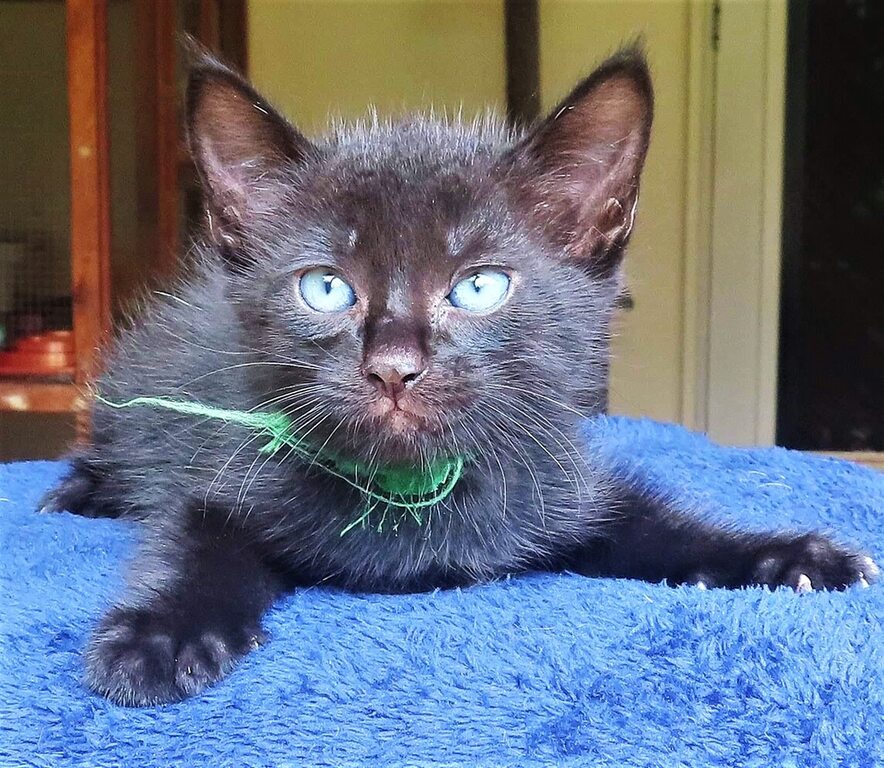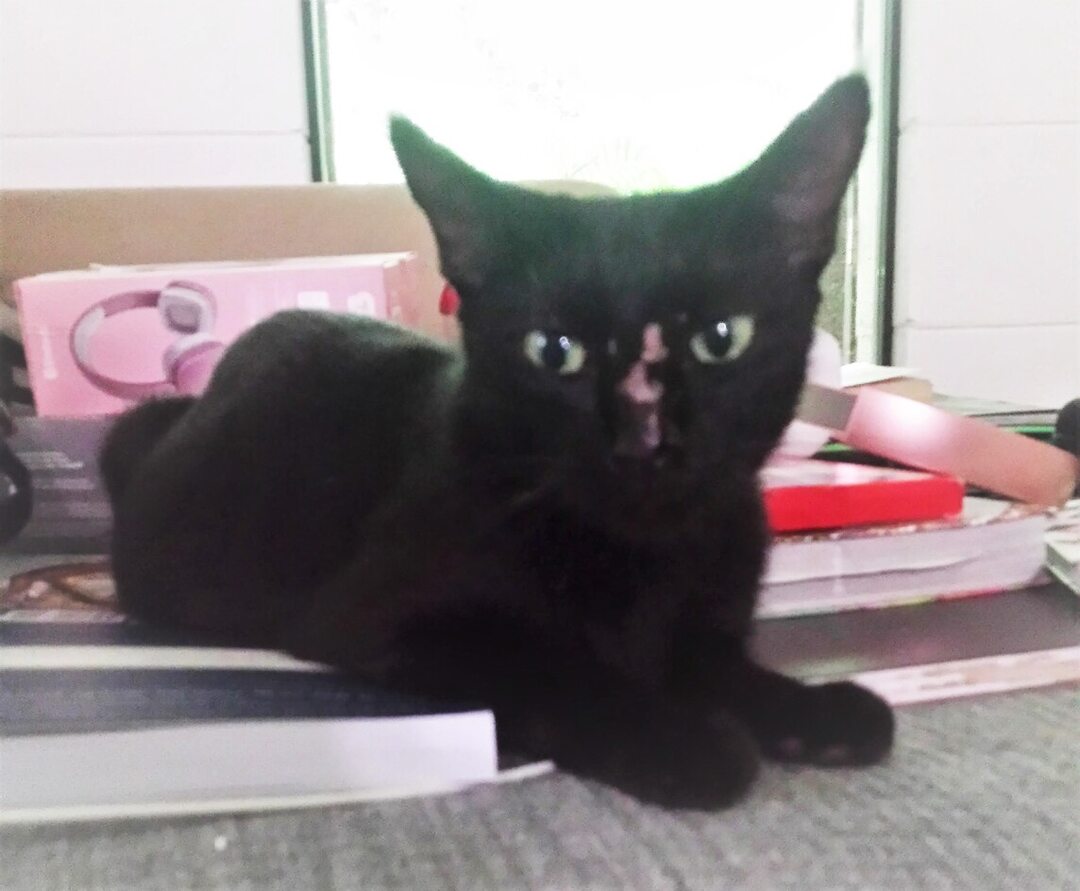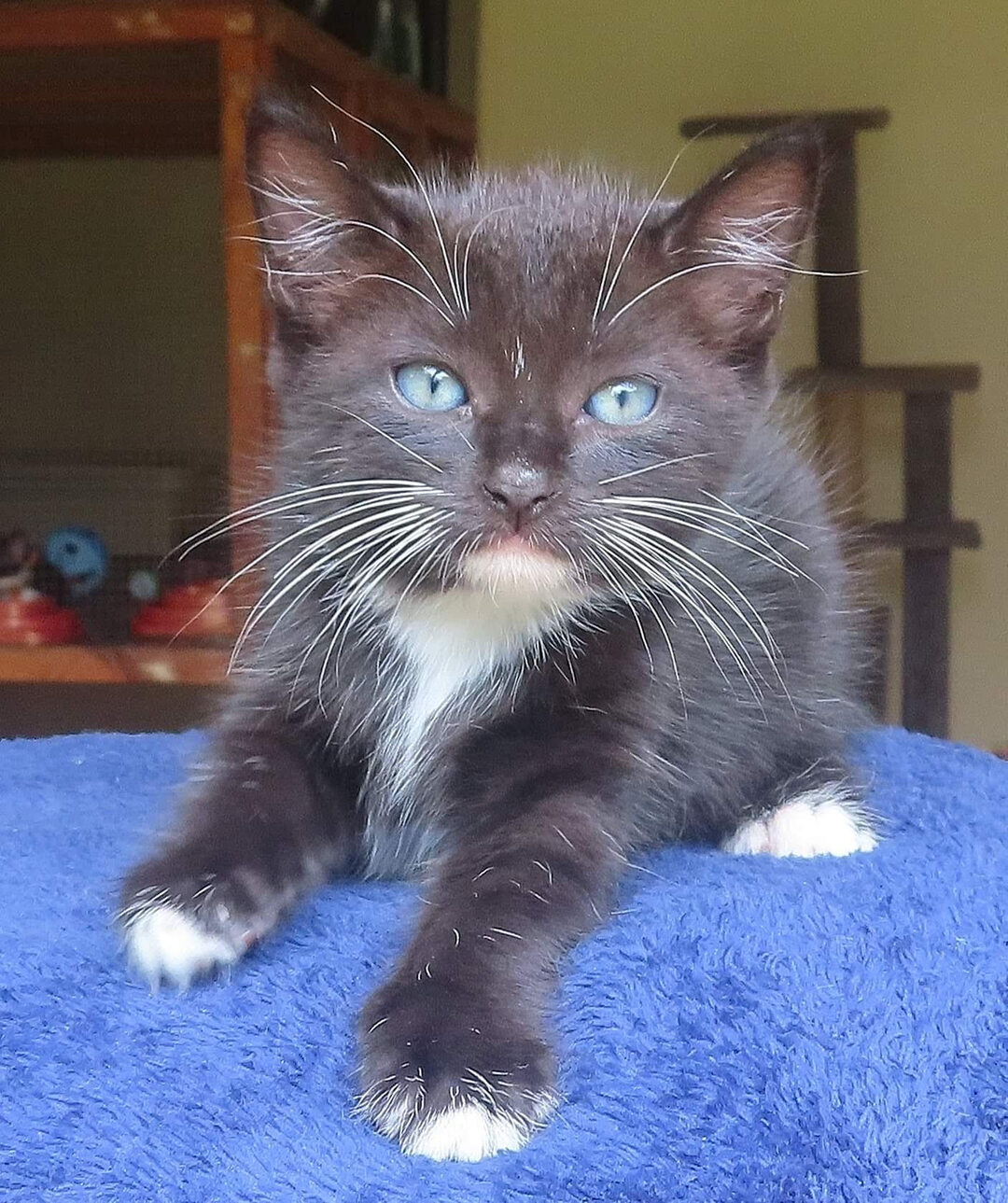
The fur-tunate tale of Milly the Mill Cat
COMMUNITY

Meet Milly. Milly is a mysterious breed of cat; she is a Mill Cat. Besides sugar, she may just be the sweetest thing to come from the Mossman Mill.
Last August workers at the Mossman Mill notice a black cat had made her home at the cane crushing plant patrolling the area for mice and rats.
The Mill Cat, affectingly named Milly by the employees, seemed to have a good life for a cat. Like a wee tiger, she went about her business exploring her jungle of machinery and locomotives, chasing whatever would scurry past.
Milly became equal parts mouser and mascot, her cat-itude was often rewarded with nibbles and pats from her human co-workers.
Deby Ruddell HSE / HR Advisor for the Mossman Sugar Mill said it was thought that she was a stray, but she would get fed by a few employees and we realised she was tame.
Around Easter this year Milly became a mum having a litter of six kittens. This being her second litter during her stay at the mill the team decided it was time to end the cycle, when the cats were ready, they would be desexed.

“The kittens would find a home and Milly the Mill Cat would return to the mill to continue her days chasing rats, that was the plan,” said Deby.
However, Milly caught on to the whisker whispers, she started to relocate her kittens. Concerned employees and contractors rallied together to collect the hidden kittens.
Clever Milly would not be captured so easily, she founded a perfect hiding spot in a locomotive engine, it had to be pulled apart to retrieve the fleeing feline. After taking the cover off Milly the Mill Cat was reunited with her kittens, together they were taken home to be cared for by an employee.
Milly, with a scar across her nose as a reminder of her hard life at the mill, now has a fur-ever home where she is a connoisseur of comfort, lapping up all the attention from her new family. Sadly, three of her six kittens did not make it due to poor health.
Deby Ruddell reflected, in hindsight, a sugar mill with snakes, goannas, locomotives, and rotating equipment is not a safe place for a cat.

“We don't know how Milly got to the mill; however, this story shows the importance of desexing cats.
“Thank you to Colleen from Redlynch Cat Rehoming & Boarding, who has been very helpful in finding the kittens homes, organising final health checks, weening the kittens from mum, and arranging desexing, vaccinations and microchips,” Deby said.
Desexing your cat is an important part of responsible cat ownership. One of the key benefits is preventing unwanted kittens. Thousands of unwanted kittens are born each year and have to be rehomed across the country.
According to Animal welfare laws in Queensland, it is an offence under the Animal Care and Protection Act 2001 for people in charge of animals to abandon or release them, cause cruelty or breach their duty of care.
This includes going away on holiday or moving house and leaving a pet behind to fend for itself, or deliberately dumping an unwanted animal at the roadside or in the bush.
The maximum penalty for an individual convicted of unreasonable abandonment or release is $40,035 or 1-year imprisonment.
Thank you!
Newsport thanks its advertising partners for their support in the delivery of daily community news to the Douglas Shire. Public interest journalism is a fundamental part of every community.
Got a news tip? Let us know! Send your news tips or submit a letter to the editor here.
* Comments are the opinions of readers and do not represent the views of Newsport, its staff or affiliates. Reader comments on Newsport are moderated before publication to promote valuable, civil, and healthy community debate. Visit our comment guidelines if your comment has not been approved for publication.
